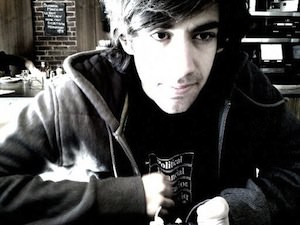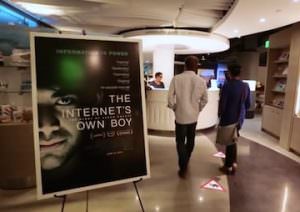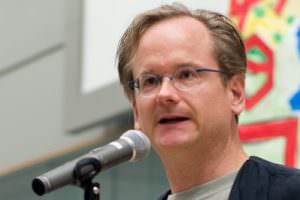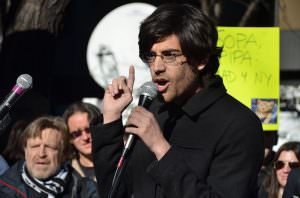Aaron Swartz’s Idealism
A sensitive, personal and varied account of Aaron Swartz's life, filled with excerpts from his blog and statements made by friends and family, offers more insight into the personality of the 26-year-old programmer and political activist who killed himself under pressure from federal prosecutors earlier this year.
A sensitive, personal and varied account of Aaron Swartz’s life, filled with excerpts from his blog and statements made by friends and family, offers more insight into the personality of the 26-year-old programmer and political activist who killed himself under pressure from federal prosecutors earlier this year.
Reading the following article by Larissa MacFarquhar in The New Yorker, one gets the sense that Swartz believed his prosecution for downloading a cache of JSTOR articles from an MIT computer closet in late 2010 and early 2011 would keep him from a lifetime spent doing the work of saving humankind, and that it was despair at the prospect of this wasted opportunity and a life lived penniless and dependent on others that drove him to commit suicide.
Read Truthdig’s article honoring Swartz as “Truthdigger of the Week” here.
— Posted by Alexander Reed Kelly.
Your support matters…Larissa MacFarquhar at The New Yorker:
“I think the essential fight of his life was to never be satisfied that he’d figured out the fight of his life,” Ben Wikler says. “He was constantly trying to figure out how to be more effective and what he should be working on. He had a beautiful willingness to change his mind completely.” It is a vertiginous thing to have so much freedom—to be always self-skeptical, always testing the reasons for your beliefs, always prepared to abandon them for something better. If you can do anything you want, then every day becomes an existential problem—an empty space of possibility that has no ceiling but also no walls and no floor.
“Much more than any particular thing he did, the self-reflection and self-doubt,” Alec Resnick says. “Being willing to say, ‘All of these things are bad, but we can work on making something better.’ To be preoccupied by the ethical ramifications of your actions, and to strip away most of the limits on how, ethically, you can behave.” To think continuously about changing the world is to spend your life looking at what is bad in it. To be attached to the world is to be attached to the world as it is, and not for any reason, because reasons can always be countered. To consider the world from first principles, to think about how well it would work if everything were different, is to be ready to throw away everything you know. Radical idealism and a sense of limitless possibility are the brighter facets of absolute rejection.
Independent journalism is under threat and overshadowed by heavily funded mainstream media.
You can help level the playing field. Become a member.
Your tax-deductible contribution keeps us digging beneath the headlines to give you thought-provoking, investigative reporting and analysis that unearths what's really happening- without compromise.
Give today to support our courageous, independent journalists.




You need to be a supporter to comment.
There are currently no responses to this article.
Be the first to respond.